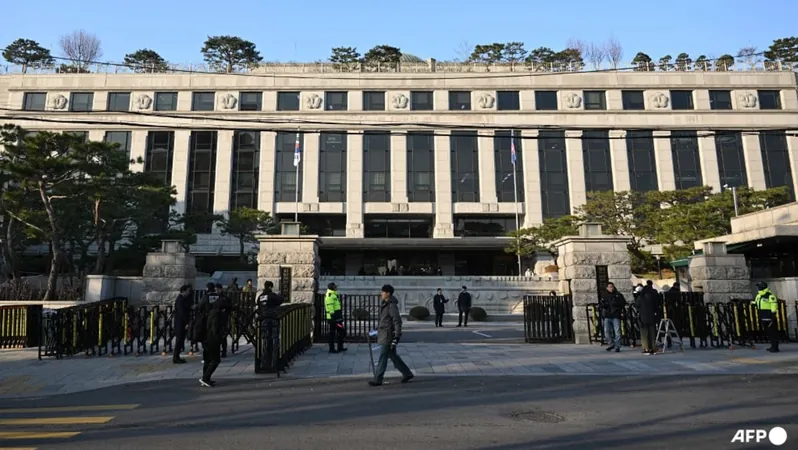
South Korea's Constitutional Court Launches Impeachment Trial Against President Yoon Suk Yeol Amid Political Turmoil
2024-12-16
Author: Wei
SEOUL
In a dramatic turn of events for South Korean politics, the Constitutional Court has officially commenced impeachment proceedings against President Yoon Suk Yeol on Monday, December 16. Yoon was suspended from office after his controversial attempt to impose martial law, which has been widely criticized and led to significant unrest across the country.
The South Korean parliament voted to remove Yoon just days earlier, after his bid to suspend civilian rule triggered unprecedented political turmoil and public protests. The Constitutional Court now has a six-month window to assess the validity of the impeachment, with fresh elections mandated within two months should they decide to uphold it.
At 10 AM local time, court proceedings began, as confirmed by a court spokesman to various news outlets. In the meantime, Prime Minister Han Duck-soo has stepped in as acting leader during this crisis.
Adding to the intensity of the situation, investigations into Yoon and his associates concerning the December 3 declaration of martial law are ongoing. Han Dong-hoon, leader of the ruling People Power Party (PPP), announced his resignation amidst the fallout, expressing regret to the public for the turmoil caused by Yoon’s actions. 'I sincerely apologize to all the people affected by the emergency martial law incident,' he stated at a press conference in Seoul.
The ousted president is currently under a travel ban as prosecutors seek to question him regarding allegations of insurrection. Notably, Yoon reportedly declined their initial summons and is expected to face a second request for questioning shortly.
As protests erupt across the capital, demonstrators continue to express anger at Yoon's actions, while smaller groups rally in support of him. Authorities reported arrests of both the current and former leaders of the Defence Intelligence Command as part of the insurrection investigation. Furthermore, the head of the Army Special Warfare Command, Kwak Jong-keun, is under scrutiny for allegedly deploying special forces troops to parliament during the martial law declaration, leading to tense confrontations.
Internationally, the turmoil has drawn attention, including a call between Acting President Han and U.S. President Joe Biden, resulting in reaffirmations of their countries' strong bilateral relations. Meanwhile, the military has been placed on high alert against potential provocations from North Korea, especially as the peninsula remains technically at war.
In a contentious response, North Korea's state media labeled Yoon as a 'ringleader of rebellion' and condemned his attempt to shift blame for the martial law declaration onto opposition parties, further complicating the geopolitical context surrounding this domestic crisis.
As the Constitutional Court weighs Yoon's fate, the people of South Korea remain on edge, watching closely as the political landscape unfolds in real-time, marking a pivotal moment for democracy in the nation.

 Brasil (PT)
Brasil (PT)
 Canada (EN)
Canada (EN)
 Chile (ES)
Chile (ES)
 España (ES)
España (ES)
 France (FR)
France (FR)
 Hong Kong (EN)
Hong Kong (EN)
 Italia (IT)
Italia (IT)
 日本 (JA)
日本 (JA)
 Magyarország (HU)
Magyarország (HU)
 Norge (NO)
Norge (NO)
 Polska (PL)
Polska (PL)
 Schweiz (DE)
Schweiz (DE)
 Singapore (EN)
Singapore (EN)
 Sverige (SV)
Sverige (SV)
 Suomi (FI)
Suomi (FI)
 Türkiye (TR)
Türkiye (TR)